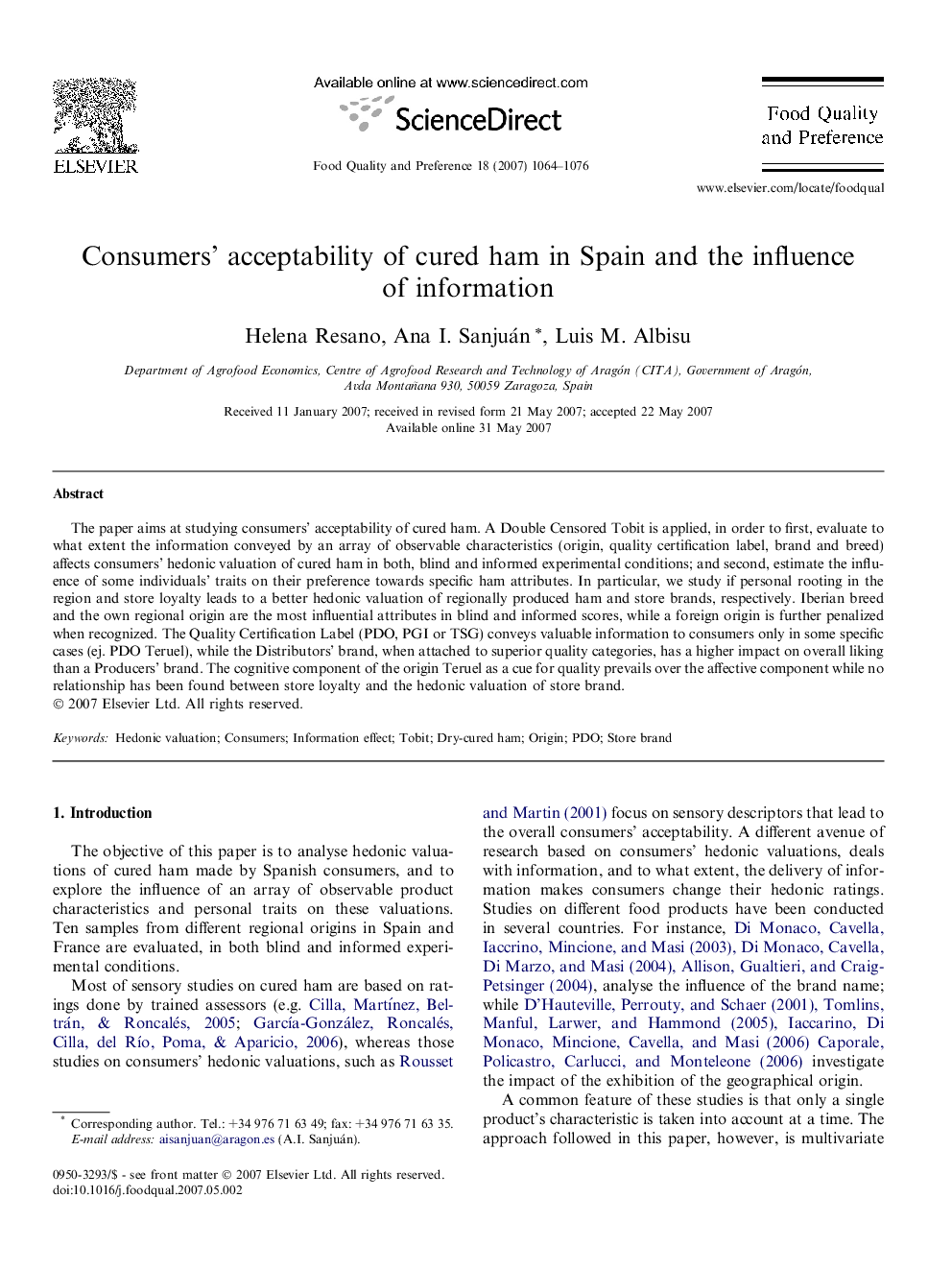| Article ID | Journal | Published Year | Pages | File Type |
|---|---|---|---|---|
| 4318110 | Food Quality and Preference | 2007 | 13 Pages |
The paper aims at studying consumers’ acceptability of cured ham. A Double Censored Tobit is applied, in order to first, evaluate to what extent the information conveyed by an array of observable characteristics (origin, quality certification label, brand and breed) affects consumers’ hedonic valuation of cured ham in both, blind and informed experimental conditions; and second, estimate the influence of some individuals’ traits on their preference towards specific ham attributes. In particular, we study if personal rooting in the region and store loyalty leads to a better hedonic valuation of regionally produced ham and store brands, respectively. Iberian breed and the own regional origin are the most influential attributes in blind and informed scores, while a foreign origin is further penalized when recognized. The Quality Certification Label (PDO, PGI or TSG) conveys valuable information to consumers only in some specific cases (ej. PDO Teruel), while the Distributors’ brand, when attached to superior quality categories, has a higher impact on overall liking than a Producers’ brand. The cognitive component of the origin Teruel as a cue for quality prevails over the affective component while no relationship has been found between store loyalty and the hedonic valuation of store brand.
